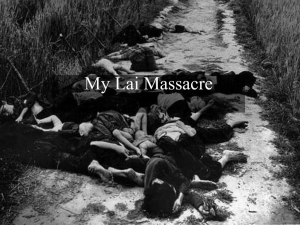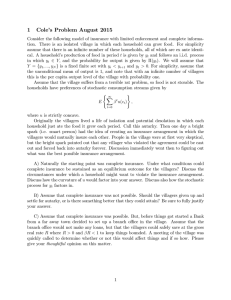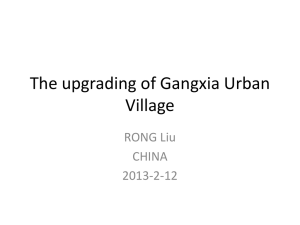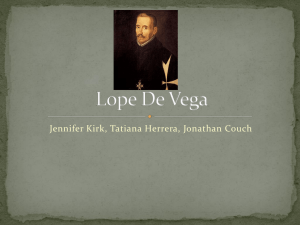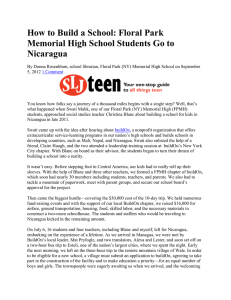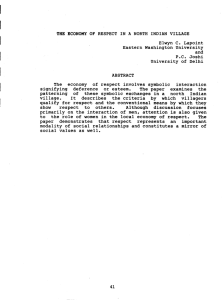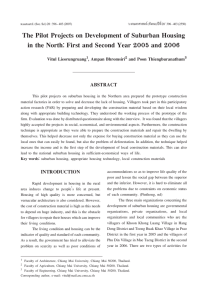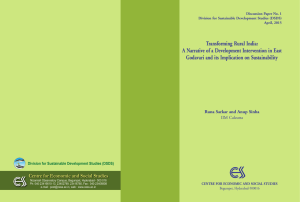Lack of rain jeopardising fodder production
advertisement
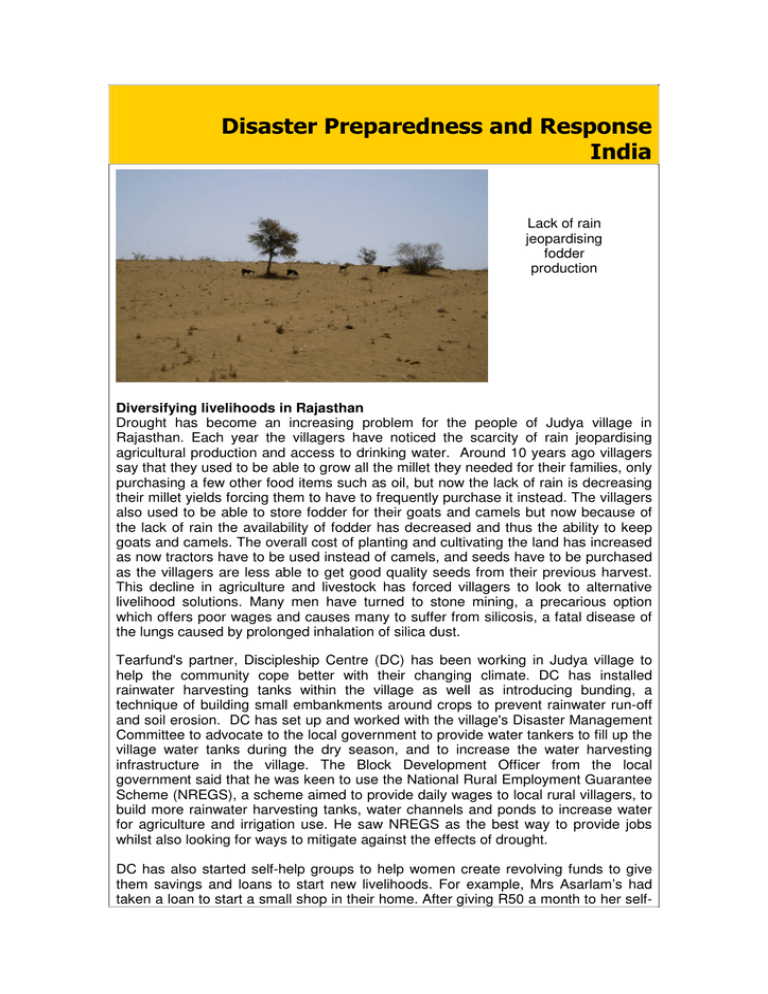
Lack of rain jeopardising fodder production Diversifying livelihoods in Rajasthan Drought has become an increasing problem for the people of Judya village in Rajasthan. Each year the villagers have noticed the scarcity of rain jeopardising agricultural production and access to drinking water. Around 10 years ago villagers say that they used to be able to grow all the millet they needed for their families, only purchasing a few other food items such as oil, but now the lack of rain is decreasing their millet yields forcing them to have to frequently purchase it instead. The villagers also used to be able to store fodder for their goats and camels but now because of the lack of rain the availability of fodder has decreased and thus the ability to keep goats and camels. The overall cost of planting and cultivating the land has increased as now tractors have to be used instead of camels, and seeds have to be purchased as the villagers are less able to get good quality seeds from their previous harvest. This decline in agriculture and livestock has forced villagers to look to alternative livelihood solutions. Many men have turned to stone mining, a precarious option which offers poor wages and causes many to suffer from silicosis, a fatal disease of the lungs caused by prolonged inhalation of silica dust. Tearfund's partner, Discipleship Centre (DC) has been working in Judya village to help the community cope better with their changing climate. DC has installed rainwater harvesting tanks within the village as well as introducing bunding, a technique of building small embankments around crops to prevent rainwater run-off and soil erosion. DC has set up and worked with the village's Disaster Management Committee to advocate to the local government to provide water tankers to fill up the village water tanks during the dry season, and to increase the water harvesting infrastructure in the village. The Block Development Officer from the local government said that he was keen to use the National Rural Employment Guarantee Scheme (NREGS), a scheme aimed to provide daily wages to local rural villagers, to build more rainwater harvesting tanks, water channels and ponds to increase water for agriculture and irrigation use. He saw NREGS as the best way to provide jobs whilst also looking for ways to mitigate against the effects of drought. DC has also started self-help groups to help women create revolving funds to give them savings and loans to start new livelihoods. For example, Mrs Asarlam’s had taken a loan to start a small shop in their home. After giving R50 a month to her self- help group's revolving fund for around 18 months, she was able to take out a loan for R3,000, to purchase what she needed for the shop. Her husband purchases items in bulk, such as oil, matches and shampoo, from Barlisa, a town around 15 kilometres away. Together they are now making an income of around R500 a month from which they are able to save almost R400 a month. Buying items in bulk has helped to reduce their own personal expenses as well. They have paid the loan back in full now and Mr Asarlam, who previously worked in the stone mines has been able to give up this work in order to support his wife in the shop. However he commented that if the drought continues and they suffer a decline in their income then he will have no choice but to return to stone mining. Women from the self help groups felt that the groups, which meet monthly, had improved their confidence and increased their access to information. They said that before DC established the groups they never mingled with other ladies except at weddings and they never had faith in outsiders. Now the responsibility they hold in managing their savings has increased their standing in the eyes of the men of the village and given them opportunities to meet with other women and learn new things.

